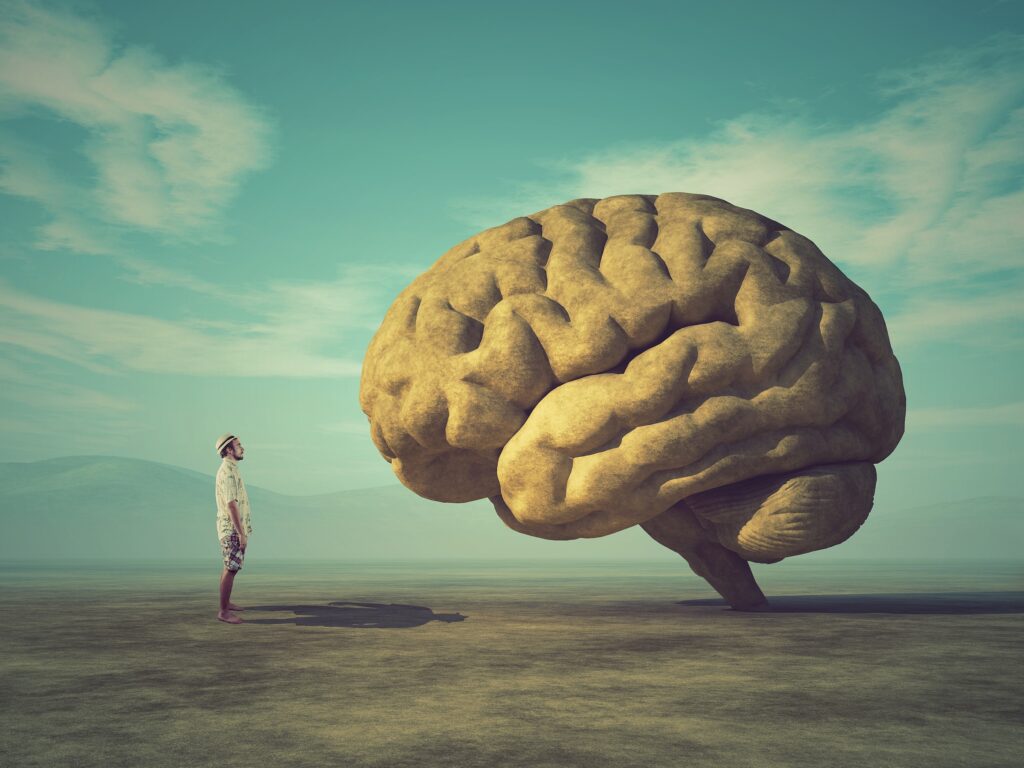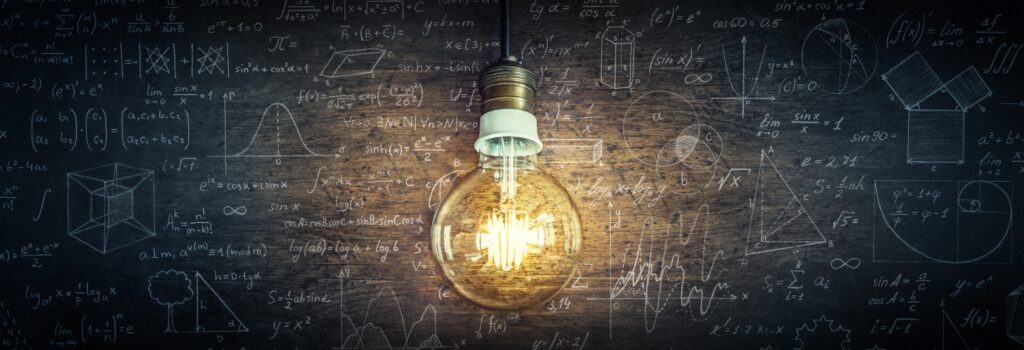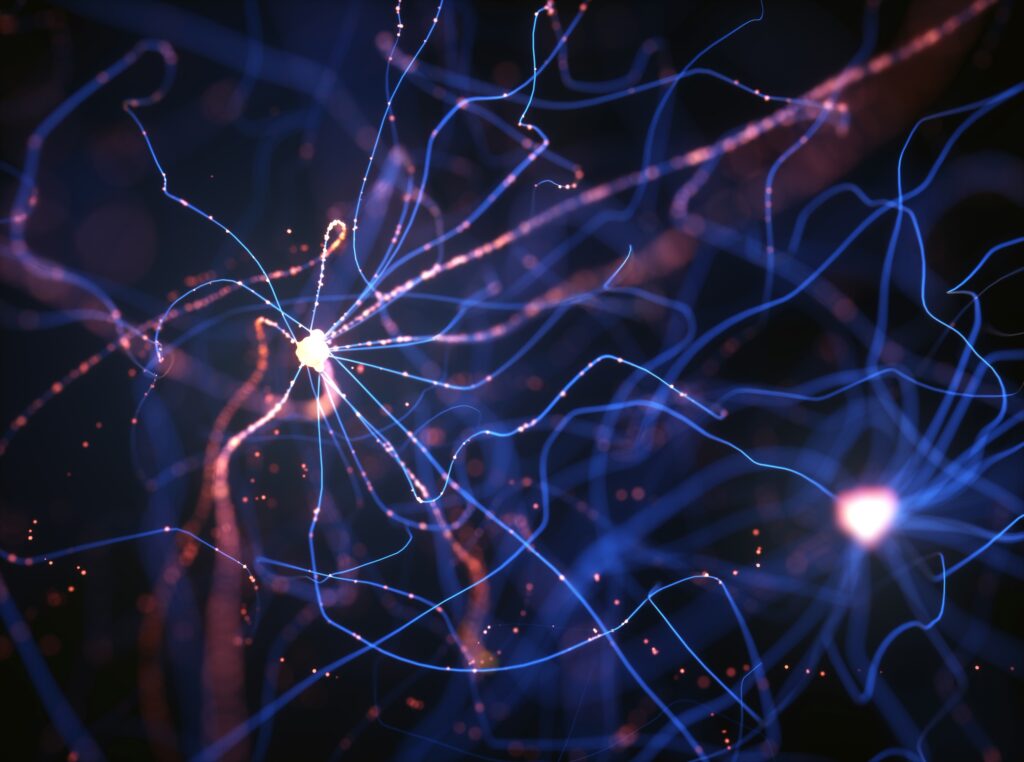The surprising reality hidden beneath language and thought
Reading | Psychology
![]() Steven Pashko, PhD | 2024-11-29
Steven Pashko, PhD | 2024-11-29

In our quest for meaning and self-understanding, language remains a valuable tool, but we must recognize its limitations. By balancing our conceptual and perceptual selves, we can live more fully, appreciating life beyond the distortions of thoughts and words. In doing so, we reconnect with the dimension of existence we have long suspected: one that’s whole and prior to the concepts of time and location, argues Steven Pashko.
Language, for all its power, cannot capture reality; it only offers an abstracted representation of what is. This limitation originates from the fact that words and concepts transform what they describe. Though indispensable in structured systems—like logic, science, and mathematics—concepts simplify and distort essential details that are crucial to understanding reality in its entirety. The moment we label, name, or define something, we reduce it to a manageable mental symbol, changing what it is. This change may help us communicate, but it fails to convey what can be directly experienced. For a few examples of these alterations, let’s recall that words cannot express:
- The uniqueness of individual things, like a particular squirrel;
- A unified whole, something without segmentation or background, where no ‘parts’ exist;
- Direct sensory experiences, such as the sweetness of honey or the scent of a rose.
When we use language to transform lived experience into generalizations, we turn the specifics of reality into broad categories. This categorizing process yields troubling consequences beyond errors of depiction: it generates artificial biases and separations. For instance, generalizations about people or groups—whether based on limited exposure or culturally inherited labels—create societal divisions, like ethnocentrism or racism. These generalizations fuel a dualistic ‘us versus them’ mentality, embedding in us a worldview where everything is defined by its difference from something else. Yet, who knows what someone with a different appearance or from a different culture can teach us. Further, such thinking distances us from what is truly essential in life: the direct, unmediated experience of human existence itself. Compare, for example, the experience of love to reading a description of it. The latter may inform us, but it does not capture the authenticity of the actual experience.
Two competing realities: experiential and conceptual
Psychologist Seymour Epstein [1] explored how humans navigate life through two distinct realities: one based on direct experience and the other rooted in thought. He referred to these as “experiential” and “cognitive” systems. Later, Nobel laureate Daniel Kahneman [2] expanded on this idea, discussing the “experiencing self” and the “remembering self.” More commonly, and perhaps to the point of their origin, we might think of these systems as “perceptual” (or experiential) and “conceptual” (or cognitive).
Neuroscientist Michael Gazzaniga [3] adds that these two information systems likely originate from the brain’s structure, with only one side having the machinery that processes language. This separation of anatomical systems hints that direct sensory experience operates [4] largely independently of language, functioning as a pre-conscious process. Perceptual intelligence, which helps us gauge value, beauty, and risk without verbal mediation, works instinctively and reflexively. It is this perceptual ability that makes us cover up when we’re cold or helps a golfer line up a putt more through perceptual awareness than mental calculation. Unlike the slower, deliberate nature of linguistic thought, perceptual intelligence allows for quick value judgments, essential for both survival and aesthetic appreciation.
The pull of language over experience
Language is crucial for communicating ideas, sharing knowledge, and handling complex tasks, yet it often overshadows the unexplainable wisdom of perceptual reality. Many people experience an undercurrent of unease—a sense that something’s wrong with how they appreciate the world—though they can’t exactly say what’s bothering them [5]. In The Matrix [6], the character Morpheus articulates this conviction:
What you know you can’t explain, but you feel it. You’ve felt it your entire life, that there’s something wrong with the world. You don’t know what it is, but it’s there, like a splinter in your mind, driving you mad.
This pull towards the inexpressible may explain why people are drawn to experiences that transcend thought, such as art, music, meditation, or physical activities. In these moments, people often report a sense of “peace,” “flow” or being “in the zone”—states where their sense of self, time, and language disappears, leaving only direct experience. This sense of awareness without thought connects us to a deeper part of ourselves that is obscured by our constant internal chatter. It may also be the reason why people seek solace through religion—from the Latin “religio” and meaning to connect back to what’s most fundamental.
Two systems, one reality: Insights from philosophy and psychology
Epstein [4] distinguished the perceptual and conceptual systems by their unique qualities. The perceptual system is holistic and non-verbal, relying on associations, images, and emotions rather than logic or rules. It provides a direct connection to the world, interpreting it through feeling and sensory impressions. Of course, like the conceptual system, it can be fooled. For example, the sun doesn’t actually rise in the east. By contrast, the conceptual system is analytical and structured, using abstract symbols like words and numbers to interpret reality. This cognitive system enables us to plan, strategize, and structure our understanding of the world. Neither one of these two systems is perfect. Each has pitfalls that must be identified and avoided. However, by failing to acknowledge and use the perceptual system, humanity runs the risk of mistakenly believing that reality can only be described through a materialist lens.
The dual-system framework mirrors ideas in ancient philosophy, particularly the Advaita Vedanta tradition. Philosopher Sankara [7] described two layers of reality: the empirical (material) and the ultimate (non-dual). In his view, empirical reality is conditionally true, while the ultimate reality—without concepts or distinctions—is absolutely true. Sankara proposed that sensory and perceptual experience can reveal a unity that the conceptual mind cannot capture: that of an underlying wholeness that escapes our attempts to label or categorize.
Bridging science and spiritual insight
The perspectives of Epstein, Kahneman, and Sankara reveal two parallel ways of knowing:
- Conceptual reality, which arises from the abstractions of conceptual thought, creates a materialistic understanding of self and world.
- Perceptual reality, which is direct, timeless, and beyond language, offers a seamless experience of existence that exists prior to labels and categories.
The non-dual, perceptual view enables us to glimpse a stable sense of self that transcends any particular role or identity. Philosopher René Descartes [8] famously wrote, “I think, therefore I am,” defining selfhood through thought. But our identities, shaped by roles like ‘parent,’ ‘activist,’ or ‘executive,’ are ever-changing and provisional. Are we truly different people in each role, or is there a more fundamental, enduring self? The answer lies in the non-verbal perceptual self, which remains consistent amid life’s changes. This deeper self, overshadowed by our conceptual identities, holds the key to a stable understanding of who we are.
The quest for an enduring self
Many of us chase a stable self-concept or worldview, especially when we try to ground our identity in changing, external factors. This chase certainty can feel like a never-ending cycle, driven by the shifting nature of thought-based identities. However, this search subsides when we turn inward, to explore the question, “What is my perceptual identity?” By shifting focus to this unchanging self—rooted in direct, non-verbal awareness—we connect to an authentic reality prior to words. This perceptual identity is stable and continuous, unaffected by the changing roles and experiences around us.
In quiet moments, many people sense this deeper self—a feeling of simply ‘being’ rather than constantly ‘doing’ or ‘becoming.’ This experience isn’t defined by our achievements, roles, or possessions, but by an inherent awareness that remains unaltered despite life’s fluctuations. Practices like meditation, especially when done with strong determination for the goal of detachment from both voluntary and involuntary thought, can reconnect us with this fundamental self-identity, and allow us to appreciate the reality that words fail to grasp.
Finding balance: Language and perceptual awareness
In our quest for meaning and self-understanding, language remains a valuable tool, but we must recognize its limitations. By balancing our conceptual and perceptual selves, we can live more fully, appreciating life beyond the distortions of thoughts and words. In doing so, we reconnect with the dimension of existence we have long suspected: one that’s whole and prior to the concepts of time and location.
References
- Epstein, S. (1973). The self-concept revisited. Or a theory of a theory. American Psychologist, 28, 404–416. http://dx.doi.org/10.1037/h0034679
- Kahneman, D., & Riis, J. (2005). Living, and thinking about it: Two perspectives on life. In F. A. Huppert, N. Baylis, & B. Keverne (Eds.). The science of well-being (pp. 285-304). Oxford, England: Oxford University Press.
- Gazzaniga, M. (1989). Organization of the human brain. Science, 245, 947–952.
- Epstein, S. (1994). Integration of the cognitive and the psychodynamic unconscious. American Psychologist, 49, 709–724.
- The Biggest Questions Ever Asked. New Scientist “What is Reality?” https://www.newscientist.com/round-up/biggest-questions/
- The Matrix (1999). Wachowski & Wachowski, Warner Bros.
- Dalal, N. https://plato.stanford.edu/entries/shankara/#TwoTierReal
- Descartes, Renee (1641) Meditations. Published online by Cambridge University Press: 05January 2016.

Essentia Foundation communicates, in an accessible but rigorous manner, the latest results in science and philosophy that point to the mental nature of reality. We are committed to strict, academic-level curation of the material we publish.
Recently published
Reading
Essays
Seeing
Videos
Let us build the future of our culture together
Essentia Foundation is a registered non-profit committed to making its content as accessible as possible. Therefore, we depend on contributions from people like you to continue to do our work. There are many ways to contribute.















